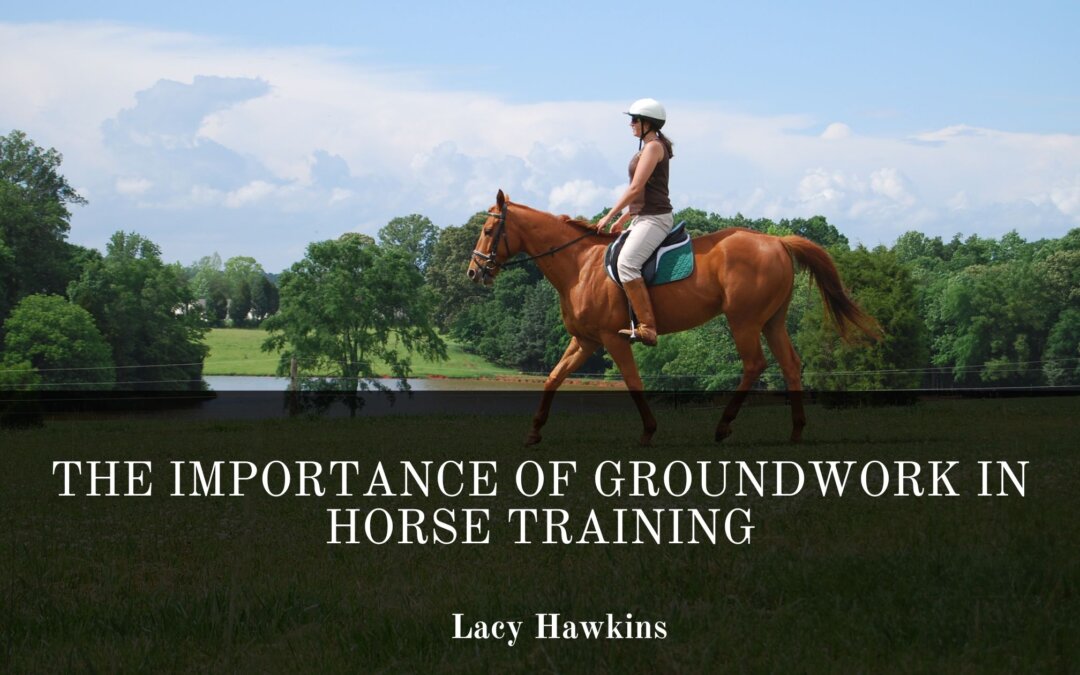Groundwork, the foundation of all horse training, is crucial in establishing a strong, respectful, and trusting relationship between a horse and its handler. It encompasses a variety of exercises performed from the ground rather than while riding, focusing on communication, leadership, and mutual respect. Groundwork is essential for creating a well-mannered, responsive horse and ensuring the safety and effectiveness of future training endeavors.
Establishing Communication and Trust
At its core, groundwork is about building a language of communication between the handler and the horse. Horses are naturally herd animals that rely on body language to communicate. Through groundwork, handlers learn to use their body language to convey clear signals to the horse. This non-verbal communication helps the horse understand what is expected and fosters trust.
One of the primary exercises in groundwork is leading the horse. By teaching the horse to follow the handler’s cues, such as stopping, walking, or changing direction, the handler establishes leadership and reinforces the horse’s trust. This foundation is critical because a horse that trusts and respects its handler is likelier to be calm, cooperative, and responsive during training.
Safety and Control
Safety is a paramount concern in horse training, and groundwork significantly contributes to ensuring both the horse’s and the handler’s safety. By working from the ground, handlers can assess the horse’s behavior and temperament, identifying any potential issues such as fear, aggression, or anxiety before mounting. This awareness allows for the timely addressing of these issues in a controlled environment, reducing the risk of accidents.
Groundwork exercises, such as lunging and desensitization, help the horse become accustomed to various stimuli and develop self-control. Lunging, for instance, involves having the horse move in a circle around the handler on a long lead rope. This exercise improves the horse’s physical fitness and teaches it to respond to voice commands and body language, reinforcing control and obedience.
Building Respect and Responsiveness
Respect is a fundamental aspect of the horse-human relationship; groundwork is instrumental in cultivating it. Horses are naturally inclined to test boundaries, and through consistent groundwork, handlers can establish clear boundaries and expectations. Techniques such as backing up, yielding to pressure, and standing still help reinforce the concept of personal space and respect for the handler.
Additionally, groundwork enhances the horse’s responsiveness to cues. Exercises like flexion, lateral movement, and transitions between gaits teach the horse to be attentive and responsive to the handler’s signals. This responsiveness is crucial when transitioning to ridden work, as a well-trained horse on the ground will be more likely to understand and respond to the rider’s aids.
Preparing for Advanced Training
Groundwork serves as the foundation for more advanced training. It prepares the horse mentally and physically for the challenges of ridden work, such as dressage, jumping, or trail riding. A horse that has mastered groundwork will likely be more balanced, coordinated, and mentally prepared for these activities.
For instance, teaching a horse to move its hind and forequarters independently on the ground directly translates to more advanced maneuvers under the saddle. Similarly, exercises that promote suppleness and flexibility on the ground are beneficial for disciplines requiring high precision and control.
Conclusion
Groundwork is an indispensable part of horse training, laying the foundation for a successful and harmonious relationship between horse and handler. It fosters clear communication, trust, respect, and responsiveness, ensuring safety and preparing the horse for more advanced training. Handlers set their horses up for success by investing time in groundwork creating well-mannered, confident, and cooperative partners. Whether for recreational riding or competitive disciplines, the importance of groundwork in horse training cannot be overstated.
